
IT'S MORNING AS we drive through Bronzeville, passing soul food restaurants, 19th century mansions, humble brick buildings, Baptist churches and a contemporary arts district. This neighborhood on Chicago's South Side nurtured many American music icons during the Great Migration of 1916-1970: early jazz pioneers King Oliver and Louis Armstrong, electric blues innovators Muddy Waters and Howlin' Wolf, gospel trailblazers Thomas Dorsey and Mahalia Jackson, and the forerunner of soul, Sam Cooke. Gospel music as an industry was born here when Black congregations took over the churches after the White flight. The new ministers, middle-class and educated, seeking to assimilate with White society, wanted nothing to do with blues. When Dorsey and Jackson became national superstars by embracing their blues roots, the community's church doors reluctantly opened a crack toward secular music influences.
It was in this tension-filled intersection of blues and gospel that, in the 1940s, Roebuck "Pops" Staples gathered his children Cleotha, Pervis, Yvonne and Mavis in the living room of their Bronzeville home to teach them spirituals from his childhood in the Mississippi Delta. "Will the Circle Be Unbroken" was the first. With a pawnshop acoustic guitar, he assigned each voice to a harmony, creating a blend that sounded like no other vocal group. Later, he would accompany himself and his family group on an electric guitar plugged into a DeArmond tremolo unit, creating a signature tone that has influenced generations of guitarists.
This story is from the {{IssueName}} edition of {{MagazineName}}.
Start your 7-day Magzter GOLD free trial to access thousands of curated premium stories, and 9,000+ magazines and newspapers.
Already a subscriber ? Sign In
This story is from the {{IssueName}} edition of {{MagazineName}}.
Start your 7-day Magzter GOLD free trial to access thousands of curated premium stories, and 9,000+ magazines and newspapers.
Already a subscriber? Sign In
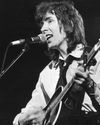
How I Wrote..."Year of the Cat"
AI Stewart reflects on his beguiling hit, some 10 years in the making.
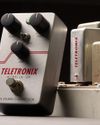
UAFX
Teletronix LA-2A Studio Compressor
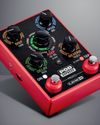
LINE 6
POD Express
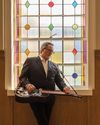
MAN OF STEEL
He brought the Dobro to centerstage with his dazzling talent. As he drops his first album in seven years, Jerry Douglas reflects on his gear, career and induction in the Bluegrass Hall of Fame.
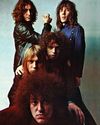
HIGH TIME
The new MC5 album took more than 50 years to arrive. The band members have all passed on, but the celebration is just beginning.
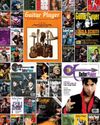
58 YEARS OF GUITAR PLAYER
As Guitar Player moves full-time to its online home, we look back at some of its greatest stories in print.

DRAGON TALES
In a Guitar Player exclusive, Jimmy Page sheds light on the amplifiers behind his Led Zeppelin tone and how they live again in his line of Sundragon signature amps.
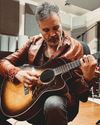
CLOSER TO HOME
Rehearsal space, studio, vessel and abode Diego Garcia's boat is the home base for his new album, as well as his musical life as the seafaring Spanish guitarist Twanguero.
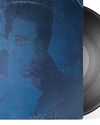
Funk Noir
With The Black Album, Prince made his greatest-and most infamousmusical statement.

Medium Cool
Striking the middle ground between its Thinline brethren, Gibson's ES-345TD remains a versatile, if underrated, gem.